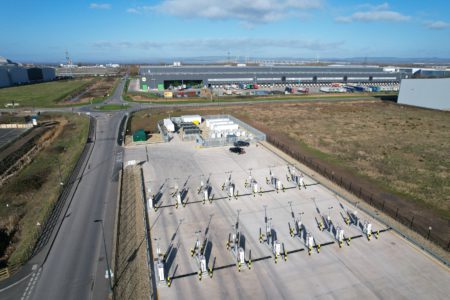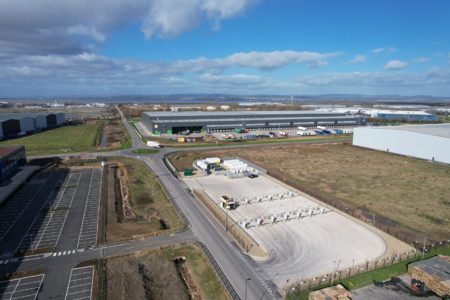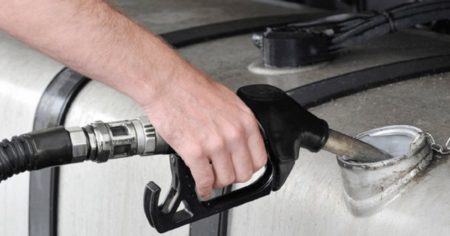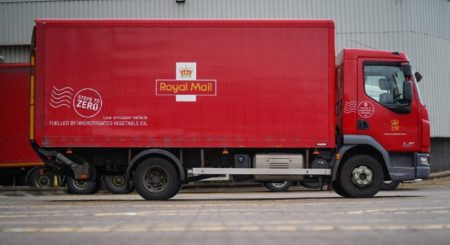search | hgvs
...cargo annually and an average of 1,800 HGVs every day’ Featuring an offset tank layout with a combined capacity of 250,000 litres and eight high-speed refuelling pumps, the facility will...
With the government announcing a £200m drive towards zero emission HGVs, British fuel tech firm SulNOx welcomes the move but warns it does nothing to tackle environmental concerns in the...
...at speeds of up to 120 litres per minute. The site has been designed to service the high volume of HGVs that pass through the port each day, and will...
...alone, expand into other European markets, and include hydrogen and electricity as part of a full-service infrastructure offering for green refuelling of HGVs. Heavy goods vehicles (HGVs) account for 18%...
Industry leaders in shipping and haulage met today to launch a cross-industry action group focused on the decarbonisation of heavy goods vehicles (HGVs). The new HGVzero taskforce will bring together...
...mileage HGVs per day, and the new sites will increase total capacity to around 8,500 HGVs per day by the middle of 2024, enabling 5% of the UK’s heaviest truck...
...real world alternatives to diesel HGVs. Logistics UK’s acting deputy director of policy, Michelle Gardner, comments: “Logistics businesses are committed to decarbonising their operations, but to ensure a smooth transition,...
...supply infrastructure. The technology will have a role to play, especially where considerations around battery weight (HGVs), range (HGVs and long-distance buses and coaches) and route gradient/engine torque are pertinent. ...
The Freight Transport Association (FTA) has welcomed the announcement from the Department for Transport about the consultation Examining the Speed Limit for Heavy Goods Vehicles (HGVs) over 7.5T on Single...
...in October 2022 was £467.50, compared to £340 in 2021. For large haulage companies running fleets of around 2000 HGVs, it means a year on year increase in fuel expenditure...
...which is only 9 years away. The Government has also pledged that all new HGVs sold in the UK will be zero-emission by 2040, with a deadline of 2035 for...
...our operation by introducing 5,000 electric vehicles into our final mile fleet but we also need to focus on our HGVs. “At present, the electric and hydrogen alternatives are still...
Between early 2019 and the end of 2020, cities across the UK will start levying prohibitively high charges on older HGVs and vans, for air quality reasons. This autumn’s FTA...
...used to fuel a range of vehicles, from airside vehicles to HGVs, including supermarket delivery trucks. Funding a talent pipeline Today’s announcement also confirms £300,000 delivered directly to colleges in...
...on the rise since 2021, nearly rising back to pre-pandemic figures, with heavy goods vehicles (HGVs) being the second largest contributors, only behind cars, responsible for 28% of climate emissions...
...time, and certainly not by 2030. HGVs and vans are responsible for a staggering 35 million metric tonnes of carbon dioxide equivalent in the UK alone. “Whilst further developments are...
...fuels emerge at scale. It reduces emissions today, and it promotes further investment into renewable fuels that will be vital to decarbonising hard to abate sectors like HGVs, marine and...
...the rule change. For example, with the government’s Transport Decarbonisation Plan also impending – which will see the end of the sale of new diesel HGVs by 2040 and light...






